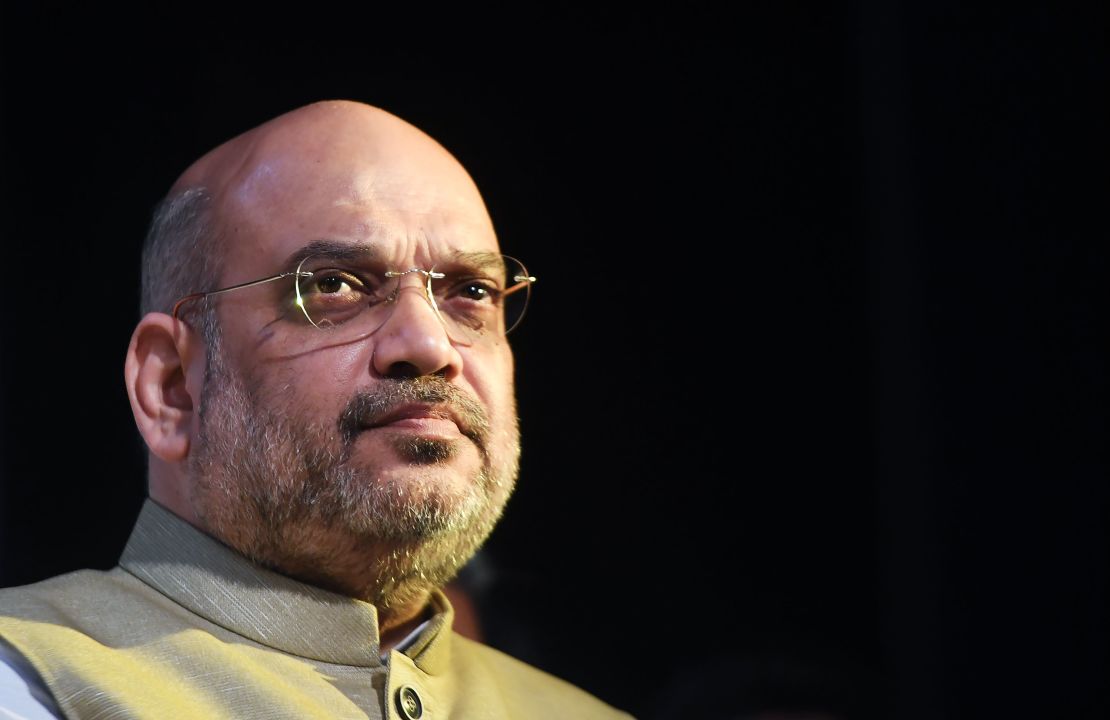One of India’s most senior officials tested positive for the coronavirus and another minister died of the virus on Sunday, marking the end of India’s deadliest week of the pandemic so far.
Minister of Home Affairs Amit Shah announced on Twitter that he was tested after developing symptoms of Covid-19, and has been admitted to a Delhi hospital.
“I got the test done and was found positive,” the 55-year-old minister said, adding that he asked those who have been in contact with him in the past few days to isolate and be tested.
That could include India’s Prime Minister Narendra Modi. According Shah’s office, he last saw Modi in person on Wednesday, when he attended a cabinet meeting at the PM’s residence in New Delhi.
Modi has not publicly commented on getting tested or the results of any such test.
After meeting Modi, Shah also met with other government officials and members of Parliament, including lawmaker Babul Supriyo, who tweeted on Sunday that he would be self-isolating and getting tested.
Shah has been actively involved in the government’s coronavirus response these past few months, with visits to treatment centers and emergency field hospitals

The virus has struck a number of other government officials. Kamal Rani Varun, the minister of technical education in Uttar Pradesh state, died on Sunday from coronavirus, confirmed Chief Minister Yogi Adityanath on Monday. She died at a hospital in the state capital Lucknow, where she was receiving treatment.
“Her entire life was devoted to social service,” Modi tweeted after her death, extending his condolences to her family.
The chief minister of India’s southern state of Karnataka also announced that he tested positive on Sunday, only hours after tweeting well wishes to Shah.
“Whilst I am fine, I am being hospitalized as a precaution on the recommendation of doctors. I request those who have come in contact with me recently to be observant and exercise self quarantine,” Chief Minister B.S. Yediyurappa tweeted.
The virus has hit celebrities as well, including Bollywood star Amitabh Bachchan, one of India’s most famous actors. The 77-year-old announced Sunday that he has now recovered from the virus and was discharged from hospital after a three-week stay. He is now home in solitary quarantine after testing negative, he said on Twitter.
This past week was India’s deadliest, with more than 5,300 coronavirus related deaths reported. The country now has more than 1.8 million cases and 38,000 deaths, according to the health ministry.
Cases rise nationwide
India has the third-highest number of virus cases worldwide, according to data from Johns Hopkins University. Only two other countries – the United States and Brazil – have recorded more than 1 million cases.
The pandemic has accelerated dramatically in India in recent weeks. While it took the country nearly six months to reach the 1 million cases mark, a further 750,000 people were infected in just 17 days.
New Delhi and Mumbai, the country’s two most populous cities, are among the worst hit.Mumbai, India’s financial capital with a population of more than 12 million, has reported more than 115,000 cases as of Saturday evening, including at least 6,180 deaths. The city is in Maharashtra, the worst-hit state in India with more than 416,000 confirmed cases and at least 15,300 deaths, according to official statistics.
In these cities, where the wealth gap is immense, coronavirus has spread indiscriminately, infecting politicians and Bollywood stars as well as those living in crowded slums.
But it has also highlighted some of these deep-rooted inequalities; although Mumbai is India’s richest city, its wealth is largely held by a small, elite group, who can afford care at expensive private hospitals. Most residents are left to public hospitals, which were quickly overwhelmed in April and May as the virus took hold.
A study released last week found more than half of residents living in Mumbai’s slums, where people live cheek by jowl with often limited sanitation, may have contracted the virus – and are likely being infected at a much higher rate than others. The study raised questions over the level of testing in India.
This could also be why infection rates are so high citywide, despite lockdown measures; many wealthier residents are dependent on those living in slums for services such as gardening, cleaning and driving.
India has a relatively low Covid-19 mortality rate per capita compared to other hard-hit countries, with only 2.47 deaths per 100,000, compared with 45.24 in the US and 68.95 in the United Kingdom, according to Johns Hopkins University data. Experts have pointed to India’s relatively young population as a possible explanation for the lower mortality rate, as young are less likely to die from coronavirus.
Modi has pointed to these figures, as well as the coronavirus recovery rate, to claim that India’s response has defied global expectations – while others argue the pandemic has revealed the country’s shortcomings in providing widespread accessible basic needs like health care, education, and electricity.




